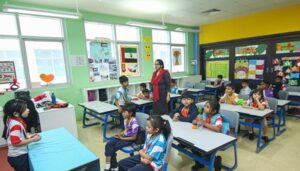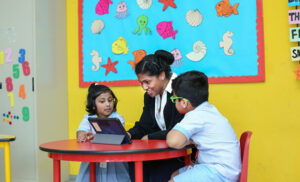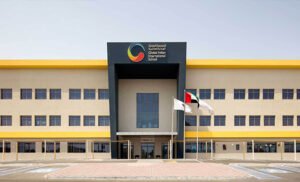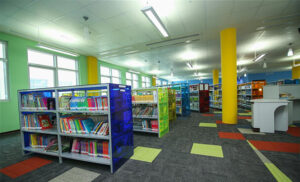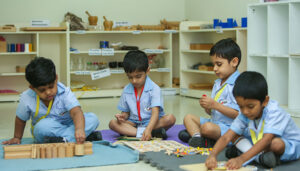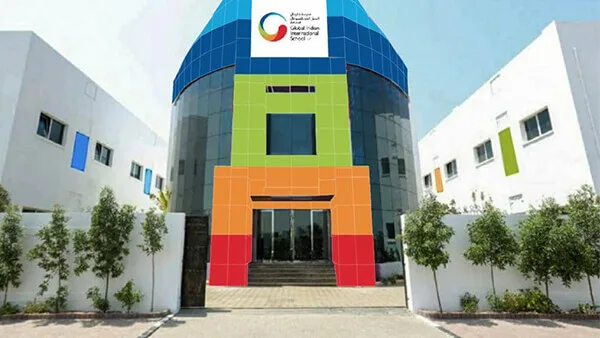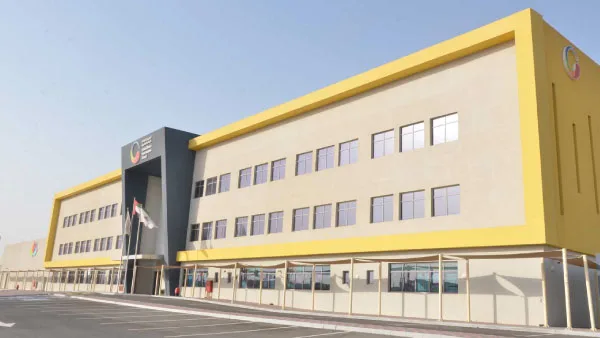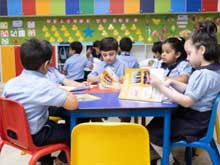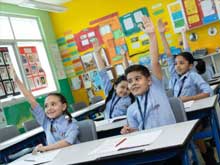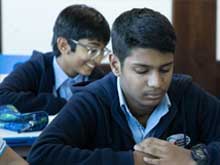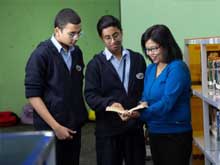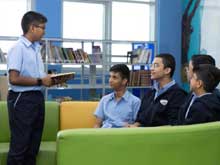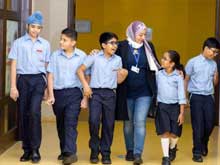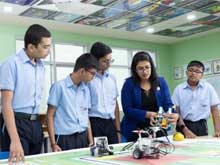In modern times, the focus on the holistic development of children and students have risen in schools in Abu Dhabi.
Schools are taking time to rethink traditional ways and benefit every single student.
Holistic development is not just academics but so much more including sports, extracurricular activities, mental health, sex education, upskilling, technology-driven force, peer-to-peer learning, industry learning, alumni meets and learning from them, personalized education, bite-sized knowledge, different mediums, community-driven learning, hybrid learning, leadership amongst many others.
Let’s look at some of the best classroom strategies that help students in schools in Abu Dhabi, especially in primary schools:
1. Balancing Co-Curriculars And Academics
Often schools in Abu Dhabi and across the world say that a human being is whole and not just isolated parts. They are a sum of parts and academics happens to be one of the parts.
It is incredibly important that the focus is on academics, but a balance is required between academics and co-curricular activities where a child can explore and be curious to learn new things and develop passions and hobbies that may turn into careers later on.
Co-Curricular activities like sports, basketball, football, literature club, book club, science society are some options. It helps students find out more about themselves and create an identity and understanding of self.
2. Interactive Environment For Primary Schooling In Abu Dhabi
It is very important, especially for young children to have environments that are interactive and points of learning at all times. Whether it is painted walls with themes of different styles, like rabbits and vegetables.
Interactive points help children wonder and interactive material helps them be curious and learn on their own.
Interactive environments are a great learning point building trust, curiosity, and problem-solving skills.
3. Tech-Savvy Classroom Education In Schools In Abu Dhabi
Technology has penetrated all aspects of our lives and has become ubiquitous.
It only makes sense for students to also experience technology in classrooms so they are more comfortable in the real world.
Using artificial intelligence and virtual reality so students can experience education rather than just mugging data is very important.
Even sitting in a classroom the student can learn and be playful and explore various possibilities that they physically might not be able to experience.
Data analytics, IoT are also ways that teachers can automate the system and keep records of students and their performance, homework on the cloud.
This also allows application-based interactions with parents and others in real-time.
Technology also helps track parents where students might be struggling, how they are performing, and where they are at all times.
4. Educationist Approach Of Teachers Rather Than Directive In Primary Schooling
Times are changing and so is the function of teachers. The best schools that provide primary education have their teachers trained and well equipped to handle students who are young.
This approach has also changed, while teachers are experts and given training from time to time, teachers are turning into educators.
The dissemination of knowledge is not one way, but the teacher helps students identify their best capabilities and achieve their best versions.
Teachers have become more encouraging to questions and curiosities from students and work in a collaborative sense where students get the best out of them.
The idea is for students to become self-learners.
5. Community-Driven Approach Of Teaching In Primary Schools Of Abu Dhabi
If COVID had to teach us one thing, it definitely is that we thrive in community, and programs like Montessori focus on community-driven learning.
Students can indulge in peer-to-peer learning, take community initiatives like volunteering for NGOs, gardening, painting, serving each other lunch and food, etc.
This instills a habit of caring for the community and being a member, a feeling of belonging. It is very important to instill these as it helps them drive focus and have values and respect for each other.
It also helps in creating a leadership role as they grow when they feel a part of something bigger than themselves.
It is powerful and brings home values of service, and adaptations to the dynamic world that we live in.
6. Mental Health And Well-Being At The Heart Of Learning In Schools In Abu Dhabi
With youngsters, the rate of suicidal ideation and anxiety, stress levels are increasing. This makes it very important for a school to have a counselor in place.
This counselor can help them stay healthy within themselves and boost confidence and navigate through tumultuous situations.
Mental health is connected to physical health as well, especially with the gut. If a child is facing problems, how to identify emotions, name them, label them and understand them is very important.
This also means that activities and concepts like yoga, meditation, and mindfulness are a part of the school curriculum to keep children safe and healthy both mentally and physically.
Mental wellbeing should be at the heart of growing up as most children might come from backgrounds where there is trauma, so a trauma-informed approach is also very necessary for primary school students in Abu Dhabi.
7. Hybrid Learning And Upskilling A Modern-Day Approach To Learning
Hybrid modules have gained popularity due to COVID. While some students can attend schools, others are learning through their homes on virtual screens.
Hybrid learning has opened multiple opportunities for teachers and students. In a typical hybrid model, some days school is open while it is closed on other days while online classes take place.
Upskilling is also a very important aspect for students and people of all age groups. Learning skills at a young age opens the mind of children to think out of the box and be creative.
It does not hamper their growth but allows them to gain skills that will come in handy such as soft skills which include interpersonal relationships, communication, listening, presenting, dressing up, etc.
Conclusion
The final word would be that with a fast-paced environment, children develop healthy coping mechanisms and are comfortable with whatever comes their way.
Teachers must be open to new ideas and allow students to experiment and find what they like.
Technology plays a very important role as well, the sooner students adapt to technology, they become natives. This allows them to be confident and have a positive outlook towards life and in general.
At the end of the day, if you are a teacher be open to a myriad of ideas that may seem bizarre but might become a trend before you know it, and for parents, know your child well to have an open conversation around subjects like safe touch and unsafe touch, remembering phone numbers, GPS, etc allows for safety and security of all children.





